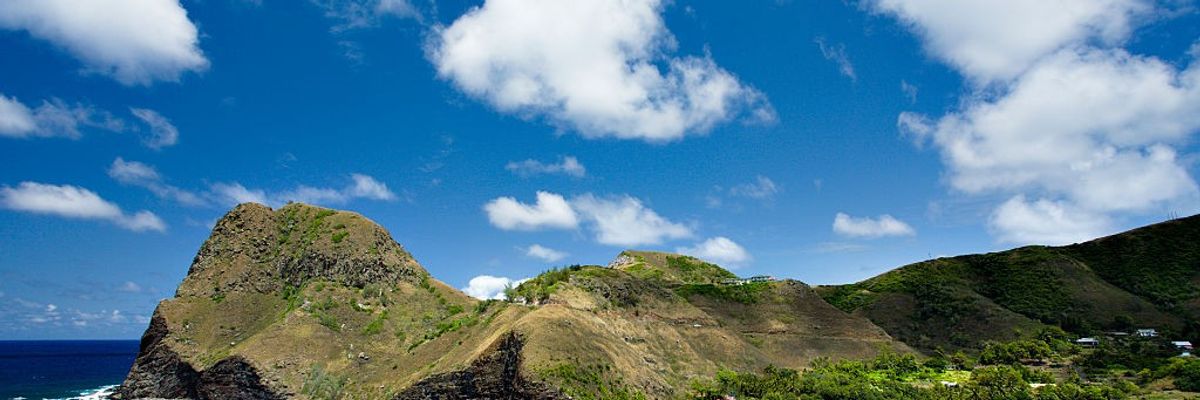Is “haole” hate speech? Is it a racial slur? This perennial question was reanimated by a highly unusual federal hate crimes case in which two Native Hawaiian men were sentenced this week to several years in prison.
The Department of Justice (DOJ) argued the men’s use of the Hawaiian word “haole” was evidence of “anti-white” hatred. The court decision against the men sets a dangerous precedent in Hawai’i and nationally given the climate of escalating white supremacy fueled by narratives of anti-white victimization.
The decision by the Civil Rights Division of the Biden administration’s DOJ to prosecute the Maui incident from 2014 as an “anti-white” hate crime was as perplexing as it was upsetting. Not only was the case old, but the men had already served sentences for their assault on a white man. And, while sensational in its violence, the incident contained evidence that should have led the jury to “reasonably doubt” that it was motivated by racial animus. Furthermore, pursuing this case seemed upside down for an administration founded in Biden’s response to Charlottesville and pledge to uproot white supremacy.
In 2021 the U.S. Attorney General and Secretary of Homeland Security warned Congress that the biggest domestic terror threat comes from white supremacists. Hate crimes increased 44% in major U.S. cities over the past two years. The DOJ prosecutes only about 17% of hate crimes cases they review. Yet, they determined this 8-year-old Maui case deserved their attention. And, by winning, they are fueling national narratives of anti-white victimization which lead to injustice and violence against people of color.
Even if one assumes “haole” is, or can be, a racial pejorative (which many, including myself, argue against), it was only used a few times during the incident. Significantly, it was used without the familiar expletives that often accompany it when used in a charged conflict. In fact, the state’s Civil Rights Commission ruled in 1995 that on its own “’haole’ is a non-derogatory term.”
To understand what is so wrong about this case, you have to contextualize it both in this national moment of escalating white supremacy, and in Hawai’i’s specific history of colonialism, racialization and immigration. That history has made Hawai’i the most racially diverse “state” in the nation. Despite high emigration, it continues to have one of the three highest Indigenous populations (following Alaska and New Mexico), with 10% identifying as Native Hawaiian or Pacific Islander alone, and more identifying as mixed.
A fact rarely highlighted is that Hawai’i has by far the lowest white population in the country (26% identify solely as white versus 46% in Washington D.C., the next lowest population). Given this multi-racial, multi-cultural context, people in Hawai’i talk about race, and in racial terms, daily. This often makes people from the continent, particularly white people, uncomfortable.
Most white Americans aren’t used to being identified racially, not used to thinking about our whiteness, and certainly not our settler status. We are comfortable being in the majority, used to being the cultural norm. When we do think about race, it’s mostly in simplistic terms – a Black-white, or PoC-white, binary – and seldom multi-racially or through complex histories of racialization and colonialism.
White people get to Hawai’i and suddenly we stick out, everyone is talking in racial terms, and we are called “haole,” a word foreign to us and therefore even more suspicious or threatening. Our first reaction is toften o get defensive, to declare “haole” a racial slur, and many remain stuck in that posture. However, those who listen carefully, come to understand that the meaning of “haole” is complex and contextual – more about histories, attitudes and behaviors than supposed immutable characteristics.
Haole is a way of naming and calling out white settler colonialism in Hawai’i. It was forged in Hawai’i’s history of colonization, dispossession, occupation, and racial capitalism. Haole names attitudes, approaches and behaviors antithetical to Hawai’i’s socio-cultural norms. It is also bigger than that, naming structural, historical and on-going violence and injustice. It is a Native Hawaiian word that traveled into Hawai’i Creole English (Pidgin) and therefore acts as a counternarrative of American settler colonialism. In this way, haole is similar to “gringo” in Mexico (and what was once Mexico), and “Pākehā” in Aotearoa (New Zealand).
The hate crimes ruling reinforces settler entitlement and narratives of white innocence by imposing a simplistic definition of racism on the incident. Claims of haole victimization increased in the wake of the Rice v Cayetano (2000) Supreme Court decision. This case will fortify attacks on programs benefitting Native Hawaiians by bolstering accusations of “reverse racism.” Those claims are already poised to catch the building wave of white resentment coming from the continent.
It’s well past time to stop mischaracterizing “haole” as hate speech. That’s a haole move couched in
white fragility. It’s high time to recognize the counternarrative of haole actually offers a valuable tool for challenging settler colonialism and white supremacy. That’s something the whole country desperately needs.
